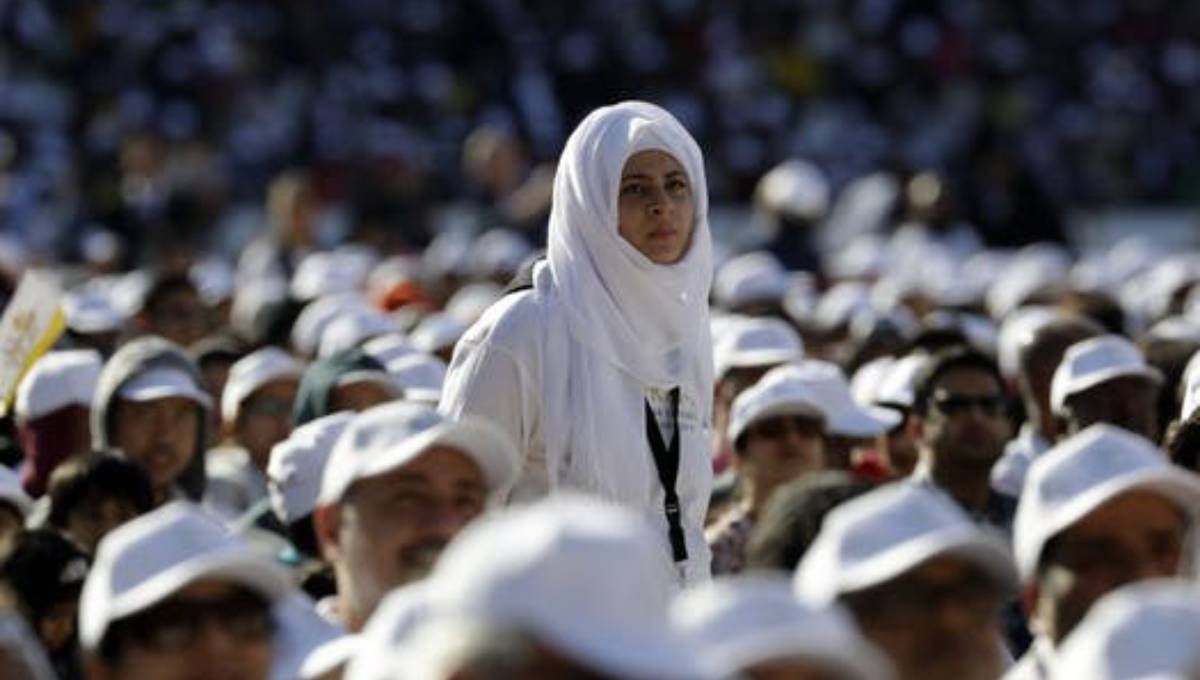Pope Francis celebrates historic Mass on Arabian Peninsula

Pope Francis ministered on Tuesday to the thriving Catholic community in the United Arab Emirates as he concluded his historic visit to the Arabian Peninsula with the first-ever papal Mass here.
Cheers erupted inside and out the the Zayed Sports City Stadium as Francis arrived and looped through the crowd in his open-sided popemobile before Mass. Chants of "Viva il Papa" and "We love you!" accompanied him as he waved to the crowd.
A day after making a broad appeal for Christian and Muslim leaders to work together to promote peace and reject war, Francis is celebrating what is being billed as the largest show of public Christian worship on the peninsula, the birthplace of Islam. The Mass was expected to draw some 135,000 faithful.
The stadium, which has a capacity of about 43,000, filled up early in the day while crowds outside were being organized in pens to watch the Mass on giant screens. Organizers said faithful from 100 countries would attend — as well as 4,000 Muslims from this Muslim federation. Prompted by an announcer extolling UAE's "Year of Tolerance," they cheered and waved Holy See flags awaiting Francis' arrival.
"We have to say it is really a big event for us which we never expected," said Sumitha Pinto, and Indian native who has lived in the UAE for nearly 20 years. She attended the Mass with her husband and four sons. Her youngest held up sign with the pope's photo that read: "Welcome Pope Francis. Make Me a Channel of Your Peace."
The Emirates' Catholic community is something an anomaly for the region — large, diverse and thriving at a time when the wider Mideast has seen an exodus of Christians fleeing persecution at the hands of the Islamic State group and others.
The Catholic Church estimates as many as 1 million of the over 9 million people living in the UAE are Catholic, nearly all of them foreigners drawn to the oil-rich federation to work in everything from white-collar finance to construction. Most are Filipino and Indian, many of whom have left behind families for work and can face precarious labor conditions, which human rights groups regularly denounce.
In an indication of the diversity of the Catholic flock, the prayers during Mass were being read out in a variety of languages and address the variety of hardships many face.
A prayer in the Indian language of Konkani called for public officials to be "illuminated" and promote the dignity of all; one in the Filipino language of Tagalog urged prayers for migrants and workers in in the UAE so that "their sacrifice and work may blossom and sustain their families;" while one in French called for those who foment violence to change their ways and "stop wars, overcome hatred and help us forge links of justice and peace."
On Monday, the pope met with Emirati leaders and signed a document promoting "human fraternity" with Sheikh Ahmed el-Tayeb, the grand imam of Egypt's Al-Azhar, the revered 1,000-year-old seat of Sunni learning. He also urged religious leaders to work together to reject the "miserable crudeness" of war and resist the "logic of armed power ... the arming of borders, the raising of walls."
"There is no alternative: we will either build the future together or there will not be a future," Francis told Abu Dhabi's powerful crown prince and hundreds of imams, muftis, ministers, rabbis and swamis gathered in the Emirati capital at a time when the UAE-backed Saudi war in Yemen has driven the Arab world's poorest country to the brink of famine.
"God is with those who seek peace," Francis added.
Francis' visit, 800 years after his peace-loving namesake St. Francis of Assisi visited an Egyptian sultan, marked the culmination of years of Holy See efforts to improve relations with the Muslim world after they hit a low during the papacy of Pope Benedict XVI. Since then, religious fanaticism and faith-inspired wars have only grown around the globe, inspiring the pontiff's efforts to promote tolerance and understanding.
